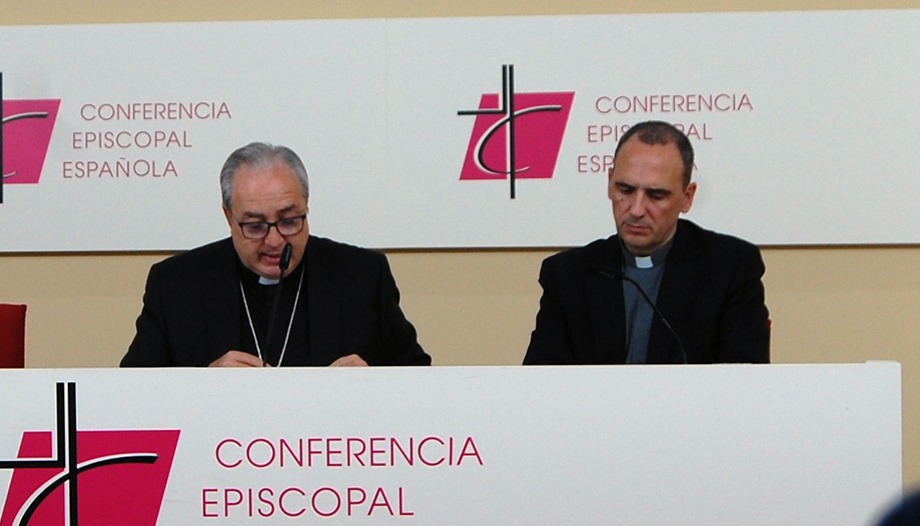The new secretary general of the Episcopal Conference (CEE), Francisco César García Magán, auxiliary bishop of Toledo, said this week that he came "to listen, to learn and to contribute", as he reported Omnes. And today, at the final press conference of the 120th Plenary Assembly of the Spanish bishops, he had to give an account of his work and submit to questions from journalists.
Msgr. Luis Argüello, former Secretary General, will remain on the Standing Commission as Archbishop of Valladolid. In addition, he will be a member of the new Council of Studies and Projects of the EEC and of the Vocational Pastoral Service, which has also been recently launched.
The EEC has informed that the plenary of the bishops has elected Msgr. García Magán as secretary general with 40 votes in the first ballot. Fernando Giménez Barriocanal, vice-secretary for economic affairs, received 14 votes, and Bishop Arturo P. Ros, auxiliary bishop of Valencia, 12.
The framework protocol for cases of abuse is a set of Guidelines for the prevention and action in cases of sexual abuse of minors, which would be applied jointly in all dioceses. Monsignor García Magán pointed out that there are already dioceses with protocols, so now the bishops will see "the integration" of the protocol in their regulations. In addition, the bishops put the protocol at the disposal of the consecrated life, although it already has elaborated texts.
Criminal principles
The Episcopal Conference has informed that "the head of the Coordination Service of the Offices for the Protection of Minors, Jesús Rodríguez Torrente, has presented to the plenary a draft protocol", in which "we have worked in collaboration and communication with the different Offices for the Protection of Minors of the dioceses, as well as the offices of Confer".
In his response to a question about the laity and the Gaztelueta case, García Magán pointed out that "in principle, the law is not retroactive. Canon 9 of the Code of Canon Law says that laws are for future events". But "it seems that in this case, the Pope, as supreme Legislator, has made a derogation to this principle of non-retroactivity".
Professor Mónica Montero explained in Omnes the reform of the Code of Canon Law in relation to abuse. On the other hand, a report by Professor Simón Yarza has accentuated the debate on penal issues in this regard.
Other documents
The plenary assembly also approved the document 'Person, Family and Society', which analyzes the current situation of Spanish society. The bishops have incorporated some contributions to the text that will be introduced before its presentation.
Likewise, the new catechism for adults "Seek the Lord", which has already been approved, will be presented after its publication. The Episcopal Commission for Evangelization, Catechesis and Catechumenate has elaborated this new catechism focused on the catechumenate and the Christian reinitiation of adults. With its publication, the CEE completes the edition of its documents of faith.
On the other hand, the bishops have approved the compliance system for the Spanish Episcopal Conference. It is a manual of regulatory compliance and good practices adapted to the nature and identity of the EEC. This criminal compliance system has been prepared by the law firm Rich y Abogados, under the supervision of the Episcopal Council for Legal Affairs.
Seminars, budgets
In view of the upcoming pastoral visit of the Vatican to the major seminaries of Spain, Monsignor García Magán pointed out, in response to questions from journalists, that in Spain "there are already interdiocesan seminaries, as in Catalonia, Avila or Valencia", and that "we will be open and available to whatever the Holy See says".
On the other hand, the Vice-Secretary Fernando Giménez Barriocanal presented the budget of the Interdiocesan Common Fund and the EEC budgets for 2023. With regard to the IRPF allocation campaign, the objective is an increase of around 4 percent more in relation to the final result of the IRPF 2020, campaign 2021.











